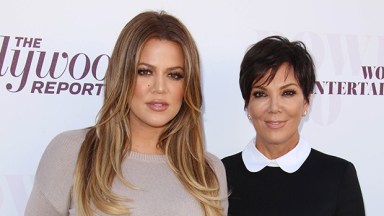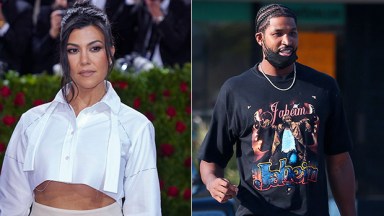Wes Anderson has a history of premiering his films at various film festivals, but he has developed a particular affinity for Cannes. Following the success of “Moonrise Kingdom” (2012), “The French Dispatch” (2021), and his upcoming ensemble comedy “Asteroid City,” Cannes has become a festival he consistently returns to. When asked about his fascination with debuting films at Cannes, Anderson humorously replied, “The reason to go to Cannes, I think, is because they said yes. After that, there isn’t really much to contemplate.”
However, Anderson admitted that there is more to it than just that. For cinephiles, the Cannes Film Festival holds a sacred significance, treating movies with the utmost reverence and granting them marathon standing ovations as a norm.
Cannes is a place where esteemed auteurs have been celebrated, such as Martin Scorsese, who won the Palme d’Or in 1976 for “Taxi Driver” and will make a return this year with his new feature “Killers of the Flower Moon.” Another example is Quentin Tarantino, a Palme winner for “Pulp Fiction” in 1994, who is also a frequent attendee and will engage in a wide-ranging conversation at the festival, which may touch upon his upcoming final film.
Anderson expressed his gratitude for being included in the program alongside other notable films showcased at Cannes, which he views as an opportunity to participate in the rich history of cinema that he deeply cherishes.
While a Cannes premiere can be financially demanding for a studio due to the costs of airfare, entourages, and luxurious accommodations, the return on investment can be substantial. Last year, “Top Gun: Maverick” had a grand debut with Tom Cruise in attendance, and fighter jets soaring over the south of France. Similarly, Baz Luhrmann’s “Elvis” hosted a rock concert on the beach with drones creating a silhouette of Elvis Presley in the sky. Both films utilized their extravagant premieres to become highly successful global hits of the year, ultimately receiving Best Picture Oscar nominations.
This year, several star-studded films will strive to benefit from their Cannes premieres, including “Indiana Jones and the Dial of Destiny,” which is promoted as Harrison Ford’s final appearance in his iconic role. Despite the lukewarm response to the previous sequel, “Indiana Jones and the Kingdom of the Crystal Skull,” and the change in directors from Steven Spielberg to James Mangold (“Ford v Ferrari”), the addition of Phoebe Waller-Bridge, in her most prominent role since “Fleabag,” will undoubtedly inject new energy into the franchise.
The filmmaker Todd Haynes, who premiered the movie “Carol” at Cannes, returns to the festival with another film centered on female characters. Titled “May December,” the film stars Julianne Moore as a teacher involved in a scandalous relationship with a former student. The plot revolves around the scrutiny faced by the teacher from a movie star, played by Natalie Portman, who is preparing to portray her in a film. Other notable films at the festival include “The New Boy,” featuring Cate Blanchett in her first role since “Tár,” where she portrays a nun, and “Firebrand,” with Jude Law as Henry VIII and Alicia Vikander as his last wife, Katherine Parr.
Two highly anticipated premieres at the festival are “Asteroid City” and “Killers of the Flower Moon.” “Asteroid City” is set in a 1950s retreat for youngsters fascinated by space and features renowned actors such as Jason Schwartzman, Scarlett Johansson, and Tilda Swinton, along with newcomer Tom Hanks, who Anderson, the director, praised for their collaboration. “Killers of the Flower Moon,” backed by Apple and directed by Scorsese, explores the mysterious murders of the Osage tribe in the 1920s and brings stars like Leonardo DiCaprio and Robert De Niro to the red carpet.
Unfortunately, Greta Gerwig’s colorful movie “Barbie,” scheduled for release in July, will not have an early premiere at Cannes, leaving us without the opportunity to witness a spectacular red-carpet fantasy.
In recent years, the prestigious Palme d’Or award has often been given to films with potential for breakout success, like “Parasite” and “Triangle of Sadness.” This year, the competition jury, presided over by Ruben Ostlund, director of “Triangle of Sadness,” includes Brie Larson and Paul Dano. They will select their favorite film from a lineup dominated by accomplished directors, some of whom are former Palme d’Or winners.
Among the notable directors is Wim Wenders, who won the Palme for “Paris, Texas” and returns with “Perfect Days,” a film about a Tokyo toilet cleaner. Hirokazu Kore-eda, whose previous film “Shoplifters” won the Palme d’Or, presents “Monster,” his first movie shot in Japan since then. While no director has ever won the Palme three times, Ken Loach could potentially achieve this feat with his new working-class drama “The Old Oak” if it garners as much acclaim as “The Wind That Shakes the Barley” and “I, Daniel Blake.”
Cannes this year includes a fair share of lengthy films, such as Steve McQueen’s four-hour-and-six-minute documentary “Occupied City,” which explores Nazi-occupied Amsterdam. However, not all premieres are feature-length. The festival will also showcase short films directed by Pedro Almodóvar (“A Strange Way of Life”) and the late Jean-Luc Godard (“Phony Wars”). Additionally, it will launch “The Idol,” an already-controversial HBO series from Sam Levinson, the mastermind behind “Euphoria,” starring Abel “the Weeknd” Tesfaye.
While Pixar’s new film “Elemental” offers family-friendly enjoyment with a G rating, Cannes wouldn’t be complete without some boundary-pushing works. Keep an eye on Catherine Breillat, known for her sexually explicit filmography with titles like “Fat Girl” and “Romance.” Her latest entry, “Last Summer,” revolves around a lawyer who develops feelings for her teenage stepson.
Finally, one film that piques my curiosity is “The Zone of Interest,” a drama set in Auschwitz, directed by Jonathan Glazer.







